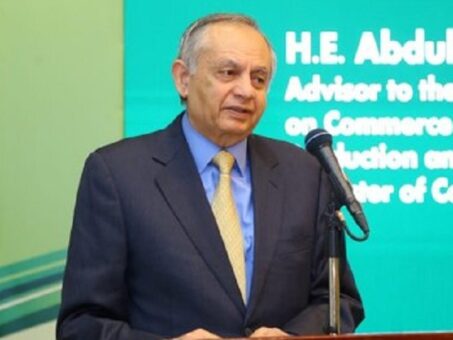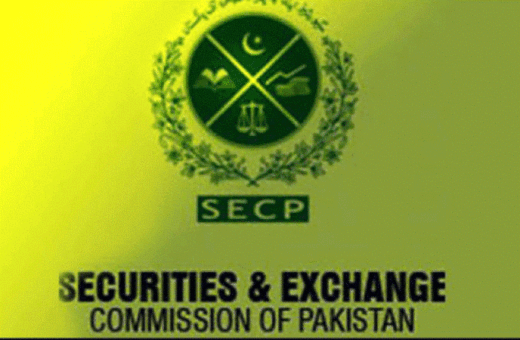KARACHI: Member countries of World Customs Organization (WCO) have accepted HS 2022, the seventh edition of the Harmonized System (HS) nomenclature used for the uniform classification of goods traded internationally all over the world.
It shall come into force on January 01, 2022, said a statement issued by WCO.
The HS serves as the basis for Customs tariffs and for the compilation of international trade statistics in 211 economies (of which 158 are Contracting Parties to the HS Convention).
The new HS 2022 edition makes some major changes to the Harmonized System with a total of 351 sets of amendments covering a wide range of goods moving across borders.
Here are some of the highlights:
Adaption to current trade through the recognition of new product streams and addressing environmental and social issues of global concern are the major features of the HS 2022 amendments.
Visibility will be introduced to a number of high profile product streams in the 2022 Edition to recognize the changing trade patterns.
Electrical and electronic waste, commonly referred to as e-waste, is one example of a product class which presents significant policy concerns as well as a high value of trade, hence HS 2022 includes specific provisions for its classification to assist countries in their work under the Basel Convention.
New provisions for novel tobacco and nicotine based products resulted from the difficulties of the classification of these products, lack of visibility in trade statistics and the very high monetary value of this trade.
Unmanned aerial vehicles (UAVs), commonly referred to as drones, also gain their own specific provisions to simplify the classification of these aircraft.
Smart phones will gain their own subheading and Note, which will also clarify and confirm the current heading classification of these multifunctional devices.
Major reconfigurations have been undertaken for the subheadings of heading 70.19 for glass fibres and articles thereof and for heading 84.62 for metal forming machinery. These changes recognize that the current subheadings do not adequately represent the technological advances in these sectors, leaving a lack of trade statistics important to the industries and potential classification difficulties.
One area which is a focus for the future is the classification of multi-purpose intermediate assemblies. However, one very important example of such a product has already been addressed in HS 2022. Flat panel display modules will be classified as a product in their own right which will simplify classification of these modules by removing the need to identify final use. Health and safety has also featured in the changes. The recognition of the dangers of delays in the deployment of tools for the rapid diagnosis of infectious diseases in outbreaks has led to changes to the provisions for such diagnostic kits to simplify classification. New provisions for placebos and clinical trial kits for medical research to enable classification without information on the ingredients in a placebos will assist in facilitating cross-border medical research. Cell cultures and cell therapy are among the product classes that have gained new and specific provisions. On a human security level, a number of new provisions specifically provide for various dual use items. These range from toxins to laboratory equipment.
Protection of society and the fight against terrorism are increasingly important roles for Customs. Many new subheadings have been created for dual use goods that could be diverted for unauthorized use, such as radioactive materials and biological safety cabinets, as well as for items required for the construction of improvised explosive devices, such as detonators.
Goods specifically controlled under various Conventions have also been updated. The HS 2022 Edition introduces new subheadings for specific chemicals controlled under the Chemical Weapons Convention (CWC), for certain hazardous chemicals controlled under the Rotterdam Convention and for certain persistent organic pollutants (POPs) controlled under the Stockholm Convention. Furthermore, at the request of the International Narcotics Control Board (INCB), new subheadings have been introduced for the monitoring and control of fentanyls and their derivatives as well as two fentanyl precursors. Major changes, including new heading Note 4 to Section VI and new heading 38.27, have been introduced for gases controlled under the Kigali Amendment of the Montreal Protocol.
The changes are not confined to creating new specific provisions for various goods. The amendments also include clarification of texts to ensure uniform application of the nomenclature. For example, there are changes for the clarification and alignment between French and English of the appropriate way to measure wood in the rough for the purposes of subheadings under heading 44.03.
Given the wide scope of the changes, there are many important changes not mentioned in this short introduction. All interested parties are encourage to read the Recommendation carefully (to be published soon).
Implementation
While January 2022 may seem far off, a lot of work needs to be done at WCO, national and regional levels for the timely implementation of the new HS edition. The WCO is currently working on the development of requisite correlation tables between the current 2017 and the new edition of the HS, and on updating the HS publications, such as the Explanatory Notes, the Classification Opinions, the Alphabetical Index and the HS online database.
Customs administrations and regional economic communities have a huge task to ensure timely implementation of the 2022 HS Edition, as required by the HS Convention.
They are therefore encouraged to begin the process of preparing for the implementation of HS 2022 in their national Customs tariff or statistical nomenclatures. The WCO will step up its capacity building efforts to assist Members with their implementation.








